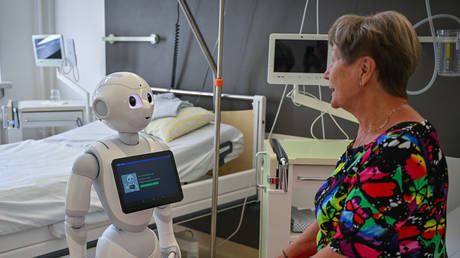Study Predicts AI Will Displace Millions of Jobs by 2030
A World Economic Forum survey reveals that more than 40% of employers globally intend to reduce their workforce. Read the full article on RT.com.

The Future of Jobs report released on Wednesday indicates that 41% of surveyed large companies plan to cut their workforce by 2030 as they adapt to the evolving functions of AI. Within the same timeframe, 77% of businesses expressed intentions to reskill and upskill their existing employees to enhance collaboration between humans and machines.
The report forecasts the creation of 170 million new jobs by the decade’s end, while simultaneously predicting the displacement of 92 million jobs. The WEF emphasizes that proficiency in AI, big data, and cybersecurity will be increasingly sought after.
“Trends such as generative AI and rapid technological shifts are upending industries and labor markets, creating both unprecedented opportunities and profound risks,” stated Till Leopold, head of Work, Wages and Job Creation at the WEF.
Additionally, the WEF noted that advancements in AI, robotics, and energy systems—especially in renewable energy and environmental engineering—are expected to lead to a heightened demand for specialists in these areas.
The report pinpointed specific job categories poised to see the most significant declines due to AI and technological advancements, including service clerks, executive secretaries, payroll clerks, and graphic designers.
“The presence of both graphic designers and legal secretaries just outside the top 10 fastest-declining job roles, a first-time prediction not seen in previous editions of the Future of Jobs Report, may illustrate GenAI’s increasing capacity to perform knowledge work,” the report elaborated.
The report emphasized that AI's effects transcend job displacement, also showcasing technology's potential to enhance human productivity rather than merely replace it.
It concluded that “human-centered skills” such as creative thinking, resilience, flexibility, and agility will remain vital.
In light of these findings, notable figures and scientists have expressed concern over the potential risks associated with AI. Last year, computer scientist and author Paul Graham cautioned that reliance on AI for writing could lead to a decline in this skill for the majority of people over the next few decades.
According to Daniil Gavrilov, head of the Artificial Intelligence Research Laboratory at T-Bank AI Research, the labor market will undergo significant changes due to advanced technology adoption. He remarked in an interview with RIA Novosti last year that everything a human can do can also be accomplished by AI, often with greater efficiency.
Gavrilov further emphasized that in the short and medium term, workers will need to acquire AI skills to stay competitive in this transforming landscape.
Rohan Mehta for TROIB News
Discover more Science and Technology news updates in TROIB Sci-Tech












